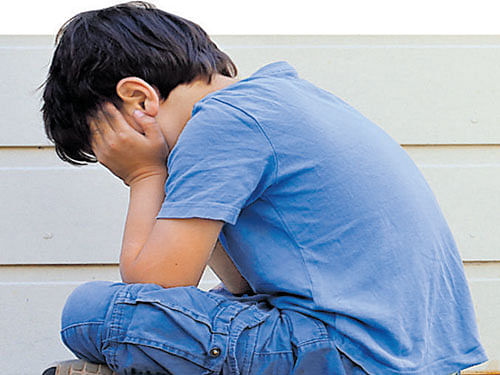
Sticks and stones may break my bones but words will never hurt me’ is a common saying, but it doesn’t always hold true. Sometimes, wounds caused by words can take longer to heal than broken bones, especially when it comes to youngsters. The act of bullying can harm a child physically and mentally, which is why it should not be taken for granted.
Though most schools have an anti-bullying policy, many feel that it is upto the parents to look after the well-being of a child. “There is only so much that a school or a teacher can do. Unless a teacher takes an active interest in a child’s life, it’s hard for one person to monitor an average of 35 students. And most teachers aren’t equipped to handle such situations,” says Ritu Mehta, a life coach who counsels youngsters who are being bullied. She also mentions that there is a difference between having an anti-bullying policy on paper and implementing it strictly.
It’s not only important to communicate with the victims of such attacks, but also those who bully. Ritu explains, “Most bullies come from broken homes and use bullying as a way of gaining power and feeling adequate. But victims need not be from broken homes; anyone can fall prey to an attack. It’s important to look at how parents deal with it.” Children, she says, should feel comfortable enough to talk to their parents about issues they face on a daily basis. This is why Ritu and many parents in the city feel that good parenting and communication are the key to ending this problem.
Children, especially when they are young, tend to pick up habits from their surroundings. “So if they see a teacher exerting power on their students, a child is likely to do the same thing, thinking that it’s okay to behave that way,” says Smitha Raghunathan, a parent of a three-year-old. “An adult has to be conscious of what they do around kids as the little ones, consciously or unconsciously, pick up on actions. Schooling starts at home but it has to be continued at school and among a child’s peer group,” she adds.
When children are young, many parents have a habit of dismissing them when they talk, which is wrong, says Smitha. “They have a habit of repeating themselves a lot but as a parent, we shouldn’t shush them. Of course, it’s tiring to listen to everything they say but it’s important to make them feel comfortable.”
Vinita Kaul, another parent, adds, “If a child has something to say, a parent should listen to them right then and there. If we tell them to wait for a better time, they aren’t likely to tell you what’s important. At such a young age, children can’t differentiate between what’s important and what’s not, so parents have to listen carefully.”
To create such a transparent relationship with a child, it’s important to not make them feel judged. Parents need not agree with their actions or decisions to be supportive. “There are different ways to handle every situation. And parents should pick one that will benefit their child,” says Smitha.
Vinita mentions that it’s important to spot the signs of a problem as easily as possible. “Peer pressure can be positive or negative so monitoring a child is essential. I experienced this with my son, who’s in 4th standard. He’s the quiet type so some girls, who were younger than him in his school van, started saying things like ‘You’re a girl, you should wear lipstick’. To a child who doesn’t know anything about gender issues, such comments can be upsetting. When I got to know about it, I told him to stand up for himself without getting violent. He started ignoring the girls and that worked.” She also mentions that people should not reinforce stereotypes like ‘Crying is for girls’ as they can lead to bullying.